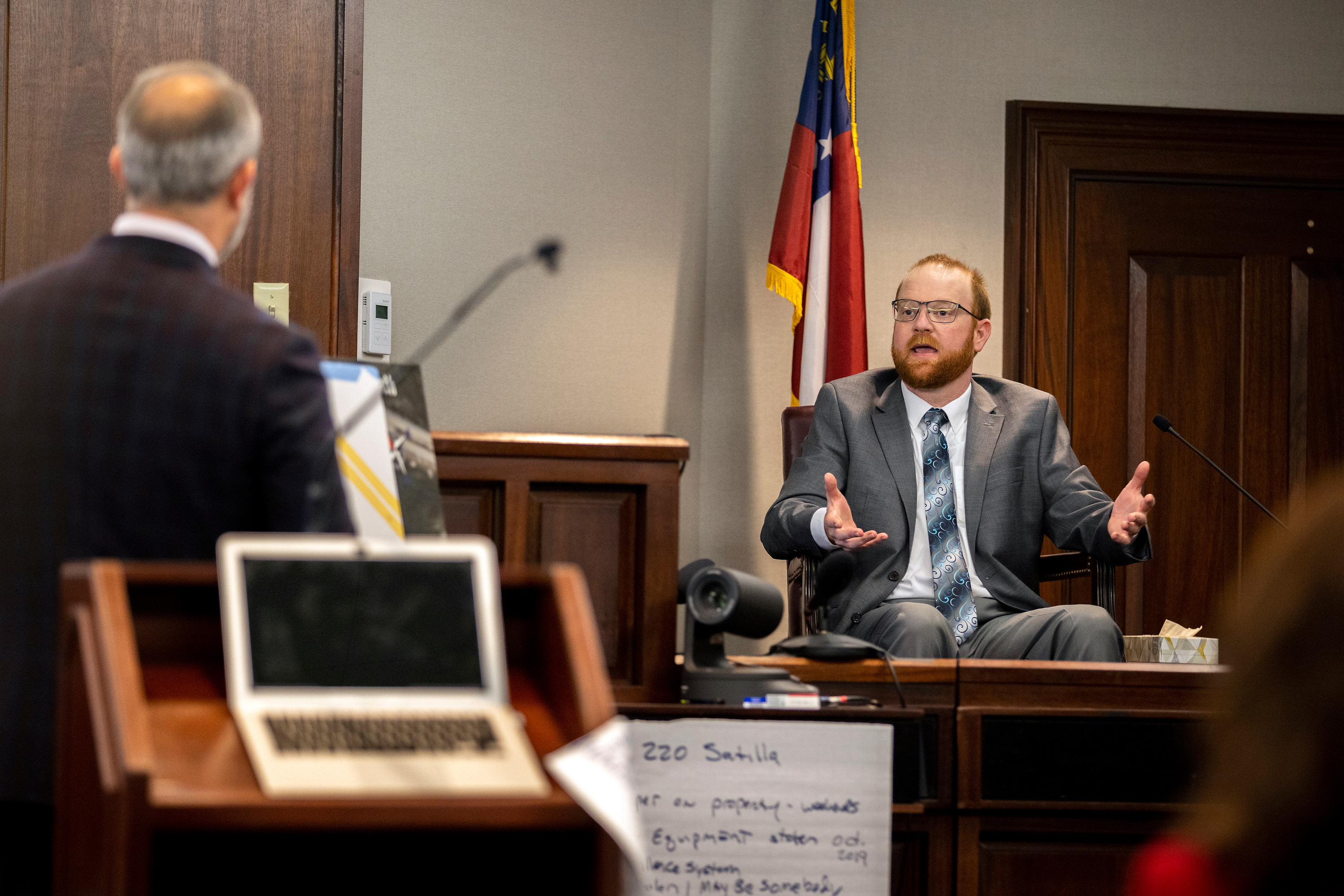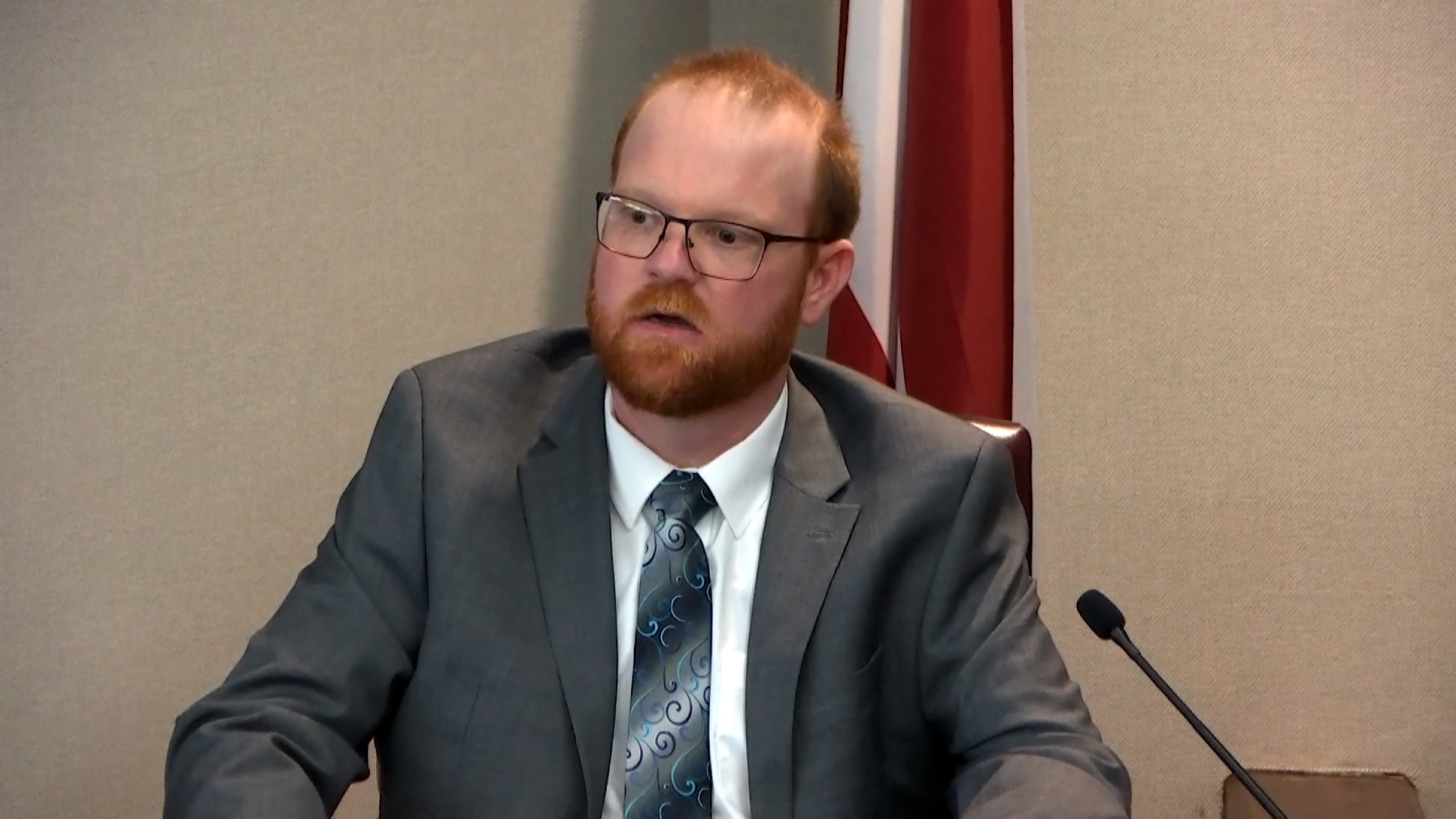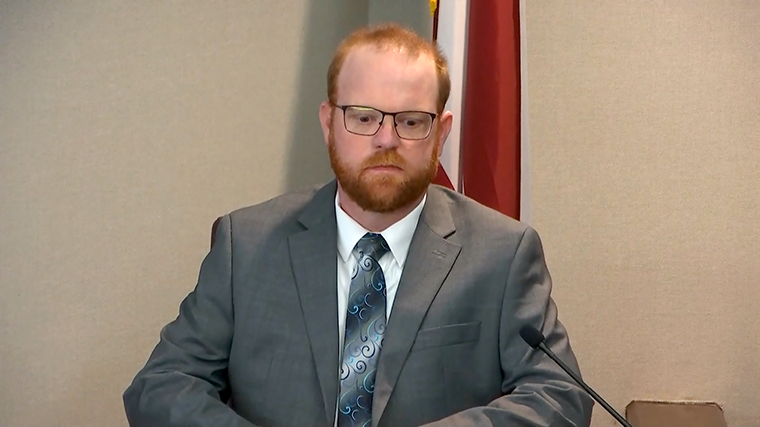The defense teams for the three defendants charged in the death of Ahmaud Arbery started their presentation to the jury after lunch Wednesday, calling defendant Travis McMichael as their first witness.
The three White men on trial, Gregory McMichael, his son Travis McMichael and their neighbor William "Roddie" Bryan Jr., are accused of chasing down and killing Arbery, a 25-year-old Black man who was out for a jog on Feb. 23, 2020, in the Satilla Shores neighborhood, just outside the city of Brunswick in Georgia's low country.
The McMichaels were arrested after a video of the shooting surfaced in May 2020. Bryan was arrested several days later.
The three men are charged with malice and felony murder and have pleaded not guilty. They also face charges of aggravated assault, false imprisonment, and criminal attempt to commit a felony. The McMichaels claim they were conducting a citizen's arrest and that Travis McMichael acted in self-defense at the time of Arbery’s death. Bryan maintains he is innocent of any wrongdoing.
Each defendant has his own defense team.
Counsel for Gregory and Travis McMichael chose to give opening arguments at the start of the trial. Bryan’s attorney chose to wait until the state rested, giving his opening statement Wednesday morning.
Some context: Robert Rubin, one of the attorneys representing Travis McMichael, painted a picture of a neighborhood that was fearful of break-ins and thefts in his opening statement.
He attempted to frame McMichael as someone who had a responsibility to protect the Satilla Shore neighborhood where he lived, saying, "This case is about duty and responsibility” in the first lines of his address.
Gregory McMichael's attorney, Frank Hogue, said the facts in the case for the most part would be “without dispute," during his opening.
"The why it happened is what this case is about,” said Hogue.
Hogue then told the court “he was in abject fear that he is about to witness his only son possibly shot and killed before his very eyes,“ discussing Gregory McMichael’s feelings when he and his son caught up with Arbery the day of the shooting.
Gregory McMichael told investigators after the shooting “my intention was to stop this guy so he could be arrested or be identified at the very least," Hogue said.
On Wednesday: Rev. Jesse Jackson joined Arbery’s parents in the courtroom gallery for the defense’s opening, according to a pool reporter in the room.
A trial jury consisting of 11 White jurors and one Black juror was selected to hear the case following a more than two-week-long selection process that included summoning 1,000 prospective jurors.
If convicted of the state charges, each man could face life in prison without the possibility of parole.
CNN’s Martin Savidge and Angela Barajas contributed to this report


